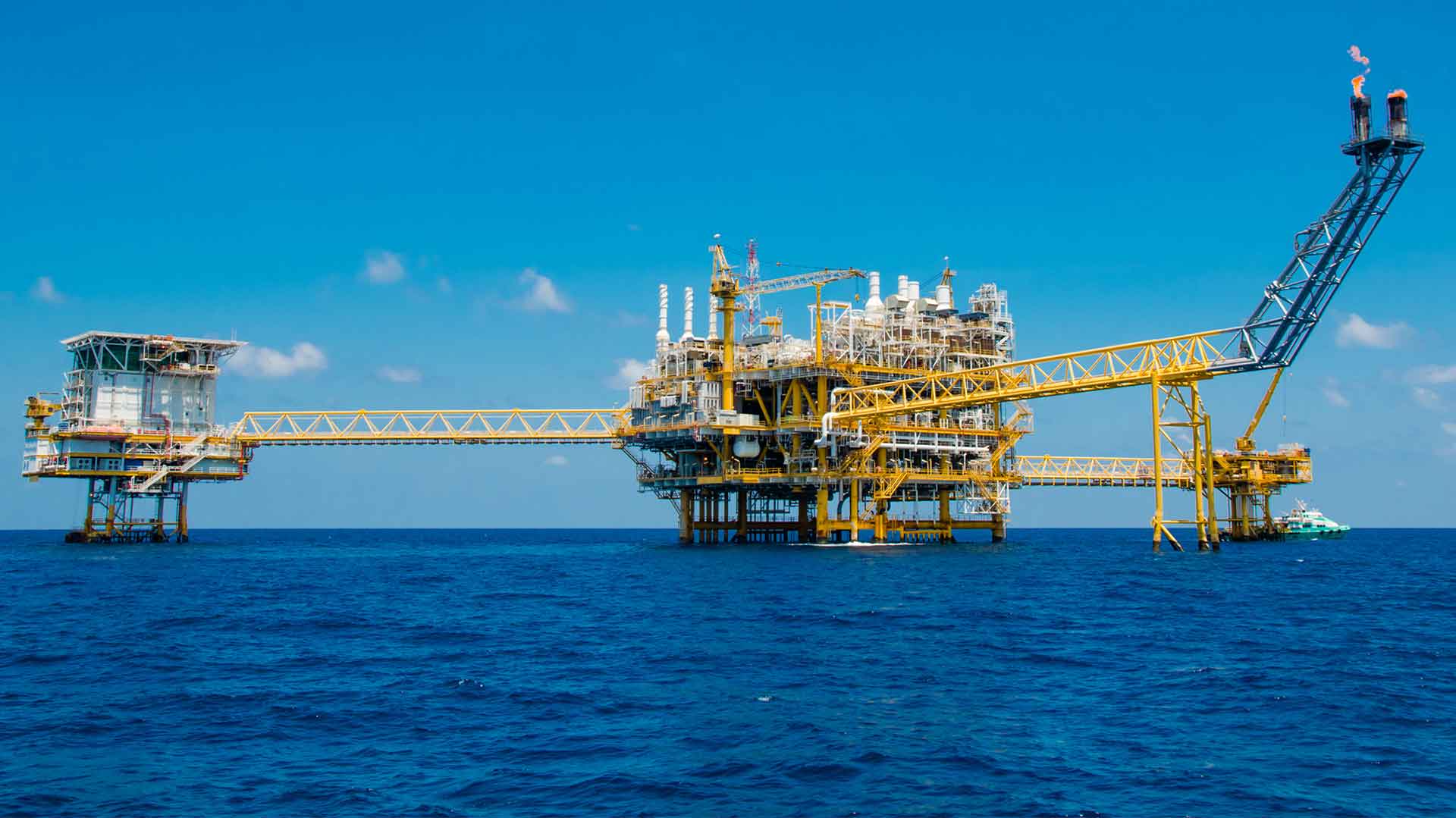Search
Oil and Gas Management MSc
Study level: Postgraduate
Gain a comprehensive knowledge of the oil and gas industry, coupled with the skills necessary for a successful career in this dynamic energy sector.
Course features
Year of entry
Location
Coventry University (Coventry)
Study mode
Full-time
With Professional Placement
Duration
1 year full-time
Up to 2 years full-time with professional placement
Course code
EEST049
Start date
January 2026
March 2026
May 2026
July 2026
Course overview
Our Oil and Gas Management MSc course provides you with a solid foundation in the industry, enabling you to pursue a career in various roles, including energy analyst, energy economist, project manager, risk analyst, policy maker and energy consultant.
This course aims to help you:
- achieve specialist professional progression and qualifications to help advance your career
- access employment opportunities in national and multinational energy companies, consultancies, energy ministries and international agencies
- learn from exposure to the complexities of management within the industry
- develop a strong understanding of the interconnections between the different value chains of the energy industry.
5 QS Stars for Teaching and Facilities
QS Stars University RatingsRanked 9th Modern University in UK by the Times
The Times and Sunday Times Good University Guide 2025Ranked 4th for Overall Satisfaction in PTES
Postgraduate Taught Experience Survey (PTES) 2025Why you should study this course
The course is designed to meet the increasing demand for practical management skills in the oil and gas industry.
- Develop skills and mindsets that will allow you to operate and lead in the energy industry.
- Gain a comprehensive understanding of the science and management strategies within the energy and hydrocarbon industry.
- Develop the appropriate intellectual and personal skills applicable in the wider energy sector.
- Explore the opportunities and challenges in the oil and gas industry to help achieve the United Nations’ Sustainable Development Goals (SDGs).
- As part of this course, you will be able to take part in the IOSH Managing Safely® online training course free of charge.2
- Gain practical experience and boost your CV with an additional professional placement. See the modules for more details.
What you'll study
How you'll learn
Teaching and learning methods may include:
- lectures
- seminars
- tutorials
- presentations
- group projects
- workshops
- practical laboratory sessions.
Teaching contact hours
As a full-time postgraduate student, you will study modules totalling 180 credits each academic year. A typical 30-credit module requires a total of 300 hours of study. Study hours are made up of teaching contact hours, and guided and independent study.
Teaching hours
Teaching hours may vary, depending on where you are in your studies, but on average you will have between 8 and 12 teaching and learning hours each week. You will also have the opportunity to attend optional sessions including time with a Success Coach or to meet with staff for advice and feedback.
Guided and independent study
Throughout your studies, you will be expected to spend time in guided and independent study to make up the required study hours per module. You will be digging deeper into topics, reviewing what you’ve learnt and completing assignments. This can be completed around your personal commitments. As you progress to the end of your studies, you’ll spend more time on independent learning.
Online learning
As an innovative university, we use different teaching methods, including online tools and emerging technologies. So, some of your teaching hours and assessments may be delivered online.
Assessment
This course will be assessed using a variety of methods which could vary depending upon the module.
Assessment methods may include:
- reports
- tests
- essays
- exams
- practical coursework
- assignments
- viva
- presentations.
The Coventry University assessment strategy aims to ensure that our courses are fairly assessed and allows us to monitor student progression towards achieving the intended learning outcomes.
Entry requirements
Typical entry requirements:
Fees and funding
| Student | Full-time | Part-time |
|---|---|---|
| UK, Ireland*, Channel Islands or Isle of Man | £11,200 £1,500 professional placement fee (if placement secured) |
Not available |
| EU | £11,200 per year with EU Support Bursary** £1,500 professional placement fee (if placement secured) per year with EU Support Bursary** £18,600 per year without EU Support Bursary** £1,800 professional placement fee (if placement secured) per year without EU Support Bursary** |
Not available |
| International | £18,600 £1,800 professional placement fee (if placement secured) |
Not available |
For advice and guidance on tuition fees3 and student loans visit our Postgraduate Finance page and see the university's Tuition Fee and Refund Terms and Conditions.
We offer a range of International scholarships to students all over the world. For more information, visit our International Scholarships page.
Tuition fees cover the cost of your teaching, assessments, facilities and support services. There may be additional costs not covered by this fee such as accommodation and living costs, recommended reading books, stationery, printing and re-assessments should you need them.
The following are additional costs not included in the tuition fees:
- Any optional overseas field trips or visits: £400+ per trip.
- Any costs associated with securing, attending or completing a placement (whether in the UK or abroad).
*Irish student fees
The rights of Irish residents to study in the UK are preserved under the Common Travel Area arrangement. If you are an Irish student and meet the residency criteria, you can study in England, pay the same level of tuition fees as English students and utilise the Tuition Fee Loan.
**EU Support Bursary
Following the UK's exit from the European Union, we are offering financial support to all eligible EU students who wish to study an undergraduate or a postgraduate degree with us full-time. This bursary will be used to offset the cost of your tuition fees to bring them in line with that of UK students. Students studying a degree with a foundation year with us are not eligible for the bursary.
Facilities
The Simulation Centre
This facility uses technology to create realistic work environments. These environments can be used to train people in a variety of skills such as communication, problem-solving and decision-making.
You could find yourself using the simulation centre for interactive occupational safety and health training or getting hands-on with software simulations and demonstrations.

Lanchester Library
The library is usually open 364 days a year. It’s where you can access your course’s specialist Academic Liaison Librarian. It’s also home to specialist teams which can support you with your academic writing and maths and statistics questions.

The Hub
The Hub is the centre of student life on campus. Facilities include a food court, convenience store, multi-faith centre, medical centre, hairdresser, coffee shops and the Your SU offices. It has fully licensed function spaces and a bar.

Careers and employability
Get one-on-one guidance lasting up to 18 months from the end of your course. We’ll help you find placements and graduate roles, offer CV and application checks, mentoring, skills workshops, employer events and more.
Facilities are subject to availability. Access to some facilities (including some teaching and learning spaces) may vary from those advertised and/or may have reduced availability or restrictions where the university is following public authority guidance, decisions or orders.
Careers and opportunities
Successful graduates could seek positions such as:
- Operations Manager (Oil and Gas)
- Energy Trading Analyst
- Supply Chain Manager (Oil and Gas)
- Contracts Administrator (Petroleum)
- Health, Safety and Environmental (HSE) Manager.
On successful completion of this course, you will be able to:
- analyse theories, concepts and complexities of managing the processes, threats and challenges of the oil and gas industry in the 21st century as it undergoes energy transition
- apply the methods and global best practices in managing health, safety and environment in sustainable exploration and production of oil and gas
- evaluate the politics of oil and gas and threats to continued supply and environmental management concerns
- demonstrate a critical awareness of the need to improve the sustainable operation and energy options in the energy industry
- demonstrate effective leadership and management skills in the oil and gas sector and appropriate business policies and strategies within a changing operational and legislative context to meet stakeholders’ interest
- apply and evaluate the limitations of a range of research methods/techniques, both qualitative and quantitative for providing information and evaluating options in an uncertain and changing organisational environment
- conduct research, in an ethical manner, and analyse data using appropriate methods and communicate the output effectively.
Where our graduates work
Many of our past graduates have gone on to work for well-known companies like Shell, Chevron, Saudi Aramco, GNPC, SINOPEC, NNPC, TPDC, HIS and CNOOC.





